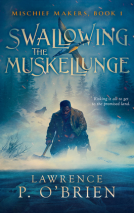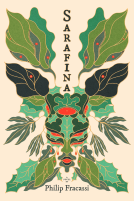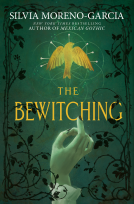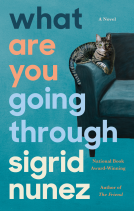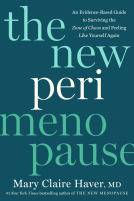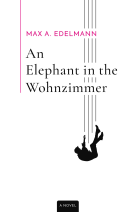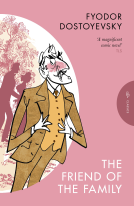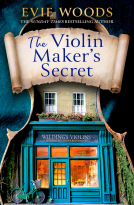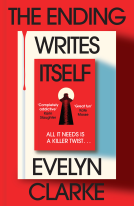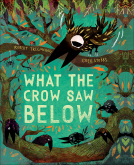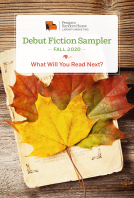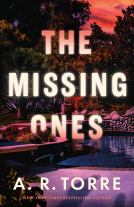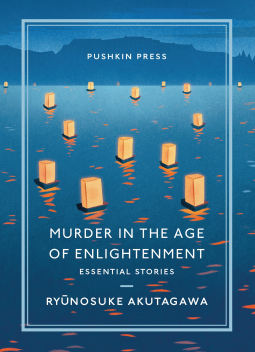
Murder in the Age of Enlightenment
Essential Stories
by Ryunosuke Akutagawa
This title was previously available on NetGalley and is now archived.
Send NetGalley books directly to your Kindle or Kindle app
1
To read on a Kindle or Kindle app, please add kindle@netgalley.com as an approved email address to receive files in your Amazon account. Click here for step-by-step instructions.
2
Also find your Kindle email address within your Amazon account, and enter it here.
Pub Date Apr 06 2021 | Archive Date Feb 15 2021
Pushkin Press | Pushkin Collection
Talking about this book? Use #MurderintheAgeofEnlightenment #NetGalley. More hashtag tips!
Description
The stories in this fantastical, unconventional collection are subtly wrought depictions of the darkness of our desires. From an isolated bamboo grove, to a lantern festival in Tokyo, to the Emperor's court, they offer glimpses into moments of madness, murder, and obsession. Vividly translated by Bryan Karetnyk, they unfold in elegant, sometimes laconic, always gripping prose.
Akutagawa's stories are characterised by their stylish originality; they are stories to be read again and again.
Advance Praise
"One never tires of reading and re-reading his work. Akutagawa was a born short-story writer." - Haruki Murakami
"The quintessential writer of his era." - David Pearce
"Extravagance and horror and in his work but never in his style, which is always crystal-clear." - Jorge Luis Borges
"He was both traditional and experimental and always compelling and fearless... There is no writer quite like him." - Howard Norman
Available Editions
| EDITION | Other Format |
| ISBN | 9781782275558 |
| PRICE | $18.00 (USD) |
| PAGES | 224 |
Average rating from 38 members
Featured Reviews
Thanks NetGalley, Pushkin Press for an Arc to review.
This was a very interesting collection of intense short stories varying in all fields.
Some pure literature, some horrifying, unsettling and magnificent.
I utterly loved it.
Thank you to NetGalley and Pushkin Press for giving me the ARC for exchange of honest review.
This book contains a few short stories written by Ryunosuke Akutagawa and translated by Bryan Karetnyk. It was a classic short stories created by Ryunosuke back in the 1920s. Age of Enlightment was referred to the era in Japan where an intellectual movement that emerged around the time of the Meiji Restoration and that was particularly active in the 1870s in the westernization phase of Japan's modernization effort.
As per the book title mentioned "Murder" ,yes this book served as the title should be. Every short storied contained a murder happened including suicidal thoughts. Almost all stories have the writer's POV and hence as if the writer wrote his memoir. There is a story also described the writer himself was fighting for his mental health problem hence suicidal thoughts.
The usage words and sentences are beautiful, poematic and lyrical. Good translation after all. As you read and enjoyed the language, you might be forgetting that these short stories contains murders. These short stories reminds me of Stephen King's . It is not a horror but might left some mystery trace in each stories.
Thank you NetGalley for this ARC!
I loved the short stories in this collection and I'm obsessed with Hell Screen and In the Grove! I really liked the author's take on what would have normally been a universal tale of redemption.
I've wanted to read something by Akutagawa for a while, so I was pleased when I saw this collection available for request on NetGalley. I really enjoyed the style of the prose, and the stories, which ranged in theme, all had something interesting to say, so that, with the exception of 'The General', which I struggled to get into, I had fun reading them all. These are perfectly crafted short stories that offer just the right balance of plot and character development, and I would certainly be keen to read more of Akutagawa's works in the future. If you are looking to sample works by classic Japanese authors, you will do well to give Murder in the Age of Enlightenment: Essential Stories your attention. Overall it was a 5-star read for me.
I muss confess that my experience with Japanese literature is quite poor. I have read a couple of Murakami’s books, of course, as well as “Convenience Store Woman” by Murata, and that is more or less all.
So when NetGalley gave me the possibility of reading this one, by an author I have never heard of, I was very excited.
And I can say, that this has been one of my most pleasant bookish discoveries in a long time.
The book presents the reader with seven newly translated “essential stories” by the Japanese writer Ryunosuke Akutagawa.
Akutagawa belongs to the Neorealism movement that took place at the end of the First World War. The majority of his work consists of short stories and they are a mixture of a kind of magical realism, religion and Japanese idiosyncrasy.
THE FIRST FOUR STORIES
1. The Spider’s Thread: This was my first contact with Akutagawa so I was trying to figure out what was this for a style. The story was a bit confusing because of all the different elements mixed together. This calls for a re-read.
2. In a Grove: It is in essence a detective novel, where a murder happens, and the reader tries to understand what really happened and who the killer is, by the different points of view of the people involved. Immensely interesting.
3. Hell Screen: This one is probably my favourite. The influence I felt the most while reading it, was the one of Edgar Allan Poe. The main character, the painter Yoshihide, is a very wicked man whose only soft point is his daughter. However, he will risk everything which is dear to him in order to achieve perfection in his art. So to speak, “the end justifies the means” elevated to its maximum degree of wickedness. Amazing story, spectacular execution, and beautiful, lyrical language.
4. Murder in the Age of Enlightenment: It gives name to the whole collection. The story is the tale of a man called Kitabatake who, before committing suicide, writes a letter to a couple, telling them of a murder he had committed long time ago which involves the wife. It is interesting to read, (especially knowing that Akutagawa himself committed suicide) but not my favourite. It felt like something was missing.
THE LAST THREE STORIES
5. The General: This one was quite confusing for me and I struggled to get into it. The story mixes different time periods and it has a bigger amount of characters than the previous ones, so I ended up mixing them all and not understanding completely what had happened. The story line explores the horrors and hardships of soldiers during war.
6. Madonna in Black: Another one that I enjoyed a lot. It tells the story of a black Madonna statue which is supposedly cursed. A very interesting mixture of Japanese traditions and Western Religious believes and its influence in the Land of the Rising Sun.
7. Cogwheels: My second favourite. In this one we are basically inside the head of the narrator who, I believe to be Akutagawa himself. This narrator suffers from depression and at least two or three more mental illnesses. We are following him during some days of his life while he attends one of his acquaintances’ wedding and tries to write stories in his hotel room. Knowing, as I now know, how Akutagawa’s life ended, this story feels 100% autobiographical. We are actually reading Akutagawa’s thoughts and struggles, which makes this story the most special of the whole book.
FINAL THOUGHTS ABOUT “MURDER IN THE AGE OF ENLIGHTENMENT”
Summing up, I want more ;)
As I said before, unfortunately I didn’t know this author. As it always happens with writers who are not North American or British, they don’t reach the general public, at least this is my feeling.
So I am very happy and grateful to have had the possibility of discovering Akutagawa. As I said before, I can see in him reminiscences of Poe, who is one of my favourite short stories writers. So it is quite logical that I have liked Akutagawa so much.
Furthermore, I have the feeling that writing short stories must not be easy. Every short story contains a whole book in itself. The writer has to make the reader understand a whole story and present all the characters in a very reduced amount of pages. And in my opinion, Akutagawa is a master writing short stories.
His choice of vocabulary, his technique in describing events and characters make reading Akutagawa narrations a real pleasure. The mixture of reality and unreality, of paganism and religion, of western and eastern elements make Akutagawa one of the most special writers I have read lately.
---------------------------
Thanks to the publisher, Pushkin Press and NetGalley for providing me with a free copy of “Murder in the Age of Enlightenment” in exchange for an honest review.
 Gayle E, Reviewer
Gayle E, Reviewer
Seven stories of wickedness from a popular Japanese writer of the early twentieth century, whose short stories inspired Rashōmon. Reminiscent of Edgar Allen Poe and even Fyodor Dostoevsky, these tales feel fresh and clever if a bit exaggerated for our contemporary tastes. Most involve murder and madness; my favorite is the long story "Cogwheels," in which a writer mainly goes around doing extremely ordinary things, and yet as his paranoia escalates, there is a riveting sense of menace to it all. Recommended for fans of Japanese literature and twisty, lurid late nineteenth- and early twentieth-century short fiction.
Thank you to NetGalley and the publisher for the opportunity to read this in advance of publication.
 Maggie R, Educator
Maggie R, Educator
Pushkin Press offers Murder in the Age of Enlightenment, another in it's valuable Essential Stories series. Ryunosuke Akutagawa wrote over 150 short stories during his short life in early 20th century Japan. Western readers may know him as the author of "In a Grove" (included here), the inspiration for Akira Kurosawa's classic 1950 film Rashōmon. He was an inspiration to both Kobo Abe and Haruki Murakami and it is clear how he influenced their vision in fiction.
The seven recently translated stories in this volume are fascinating in their themes of murder and madness with an effective balance of plot and character and shadows of the authors lifelong preoccupation with his own mental and physical fragility. I highly recommend these gems, best read one at a time to allow time for mulling and letting pieces fall into place.
Akutagawa is an absolute master of story-telling; his stories stand out for their rich descriptions, as well as for his distinct minimalist narrative style.
 Reviewer 266180
Reviewer 266180
Often Mesmerising, Often Disturbing....
A collection of seven lyrical short stories, translated from the Japanese, well crafted, often mesmerising and often extremely disturbing. A talented, original writer and a natural born storyteller.
 Bookseller 270648
Bookseller 270648
A really modern feeling set of short stories. Told in a range of styles, from court transcripts to letters, a thoroughly interesting set of tales
 Zoe R, Reviewer
Zoe R, Reviewer
Wow, eerie, strange, unsettling and atmospheric. I have always loved reading translated stories especially Japanese tales. This is a beautiful and marvellous collection of stories with what I consider his last story being a sort of goodbye letter. Utterly tragic and beautiful.
*CONTENT WARNING: MENTAL HEALTH ISSUES, INCLUDING SUICIDE*
For me, Japanese literature is a sort of comfort read, something I turn to when I am looking for something entertaining but deep, familiar but eerie. Murder in the Age of Enlightenment was no exception.
This volume is a collection of seven short stories set in a Japanese landscape across different decades and different regions of the country.
Every story has a dark angle to it and they all explore some deep unsettling corner of the human mind, taking the reader down a rabbit hole made of sadness, depression, suicidal thoughts and mental instability.
Not every story is easy to digest. I found Hell Screen and Cogwheels particularly unsettling but masterfully written, and In a Grove is quite brilliant as well. The two stories that, on the contrary, will not stick with me are The Spider’s Thread and The General: I found them less impressive compared to the rest of the stories but enjoyable nonetheless.
In line with the most canonical Japanese literature, Akutagawa’s work is difficult to explain or to place under specific definitions. Either you love it or you hate it but certainly it will not leave the reader unresponsive to the narrative.
If you love Japanese literature, you will love Murder in the Age of Enlightenment as well. If this is your first approach to a Japanese author, then give it a go with an open mind and be ready to take in whatever comes your way – you will not regret it.
 Maria Grazia B, Book Trade Professional
Maria Grazia B, Book Trade Professional
A series of short stories with desire and madness, love, death and illusion as their common thread, and which can be read like a novel, by a Japanese author who combines the all in all formal style, echoes of which can be found in the later Mishima, with a different sensitivity, mixing the classical themes of Japanese religiosity with Christianity. An unusual, obscure and disturbing text, whose highest point is certainly the cruel story "Hell screen".
Dark, elegant, and wildly unconventional portraits of desire and madness. Loved the writing style & the cohesion of the collection, especially as the narratives converged in the final (painfully autobiographical) piece.
Diversely atmospheric, the first few gripped me most and struck me as reminiscent of Poe in their unsettling angles of the human mind. Special mentions to "In a Grove" & "Hell Screen" for being unlike any short stories I've ever read, and absolutely magnificent for their time. Many in the second half built on references to specific Japanese history that went over my head, but all still unfolded with originality.
“After all, to examine my past and set it down in writing means nothing less than to relive a past life.”
This collection of seven short stories (translated from Japanese) was an absolutely dark and twisted delight to read. I am so glad to have stumbled across Akutagawa’s work.
In Murder in the Age of Enlightenment, we encounter: a parable of escaping Hell, an amusing whodunit with a murder recounted from several conflicting perspectives, a story of a disturbing painted screen with even more disturbing consequences for the painter, a suicide note, a recounting of the horrors of war, a story of a figurine that may or may not have special powers (my favorite of the bunch), and a tale of a man’s travels through madness.
From “The General”:
“Whenever I see a man decked in medals, I cannot help thinking how many cruelties he must have committed in order to be given such reward . . .”
From my favorite story, “Madonna in Black”:
‘“Cease to hope that the decrees of Heaven can bend to prayer.” With an instinctive sense of fear, I beheld the Madonna—the very embodiment of fate. Clad in blackest ebony, she wore a look of eternal indifference, her beautiful ivory face crossed by a cruel smile tinged with malice.”
Thanks to Pushkin Press and NetGalley for the review copy!
My first encounter with one of Japan’s most stellar classic writers, “Murder in the Age of Enlightenment” (Essential Stories), by Ryunosuke Akutagawa (yes, the prestigious Akutagawa prize is named after him) and translated by Bryan Karetnyk, is a collection of seven short stories, some of which have not previously been translated into the English language. The seven stories are “The Spider’s Thread”, “In a Grove”, “Hell Screen”, “Murder in the Age of Enlightenment”, “The General”, “Madonna in Black”, and “Cogwheels”. The stories are also prefaced by a short, interesting introduction shining some light on Akutagwa’s literary style, influence, and early death. Common themes across multiple stories are the artist’s struggle and descend into madness, mental torment, multiple perspectives of the same event, and some magical realism and religious themes. The stylistic aspect of the prose was reminiscent of Poe and Dostoyevsky (perhaps others also, but I am not that well versed in the classics).
I enjoyed all the stories, and I think they were all quite memorable. My favorite ones were “Cogwheels”, “Murder in the Age of Enlightenment”, and “Hell Screen”. All three dealt with mental torment and were longer, with more character development. “In a Grove” and “Madonna in Black” were close to them in personal rank, but I felt they needed to be a bit longer for me personally to get that favorite status. Overall thought, the collection in its entirety is a very good one and I look forward to reading more of the previously translated stories by Ryunosuke Akutagawa. If you are a fan of Japanese literature, classics, and/or short stories, definitely check this one out.
Thank you to NetGalley and Pushkin Press for the e-arc in exchange for my honest review.
 Susan D, Reviewer
Susan D, Reviewer
An interesting, occasionally confusing, but also very different collection of stories dating from post WWI Japan. These stories reflect Japanese, Classical Greek mythological and international literary influences known to the author. And additional influences of both Buddhism and Christianity.
Perhaps my favorite is Cogwheels, the final story, which appears to be a somewhat autobiographical tale given that we know the author died by suicide. The first person narrative is immediate, intense, jarring, scary in his increasing lack of control, his growing confusion and self questioning. The descriptions beg for intervention of some kind.
But lack of self control of various kinds is a motif that turns up in other stories too as various narrators or protagonists seem unable to prevent the activity they know will come to no good end for themselves or others.
Another series of stories under the title “The General” begins during the Russian-Japanese War of the early 20th century as we encounter a squad selected for a battle that cannot be won or survived. The following stories of the cycle all show some aspect of the same General who ordered the men on their “glorious” way for their emperor. An interesting view of soldiers thoughts many years before WWII.
I will not attempt to summarize all of the stories here. Suffice it to say that if you enjoy Japanese writing and/or short stories, I think you will enjoy reading these.
A copy of this book was provided by the publisher through NetGalley in return for an honest review.
 Karen A, Reviewer
Karen A, Reviewer
When I first came across this title I thought: Well, it seems it will be my first time reading Akutagawa but it turns out that a few years ago (2015) I bought an anthology of strange tales in my favorite second hand bookstore. This edition had "In a Grove" so that's why the style of these stories in Murder in the Age of Enlightenment kind of resonated with me.
Short story aside, this ARC automatically captivated my attention due to its tittle, as I said before, I haven't read much of Akutagawa and only know a little bit of his life but it's always nice to expand our reading horizons. "Murder in the Age of Enlightenment" presents: The Spider's Thread, In a Grove, Hell's Screen, Murder in the Age of Enlightenment, The General, Madonna in Black & Cogwheels. My favorite by far is Hell's Screen. I haven't felt this alive in some time, this tale of madness it's both equally tragic and beautiful. I also liked a lot reading the fascinating and eerie "Madonna in Black", there's something unsettling about the way the narration just flows effortlessly even with the fixation on an object. While these tales share a similar atmosphere, when it comes to style, In a Grove is an instant classic due to the elements of irony as well as mystery.
I really enjoyed reading this collection, and I recommend it to anyone who wants to feel immersed in the narration of oddly and yet captivating stories. Thanks to NetGalley for providing me this ARC.
I know they say not to judge a book by its cover, but this cover was so striking with its clean lines, that I was immediately interested. I’ve also been trying to read more translated works, so this was a win win.
I’ve never read Akutagawa’s work before and I was pleasantly surprised by how much I enjoyed this collection of short stories. Collections like this are usually a hit or miss for me, and it’s rare
These stories deal with some dark subjects. Murder, assault, betrayal, war. And yet each story has almost a dreamlike quality to them, as if being recounted by someone who remembers the strong emotions of an event, but not the particulars. The writing is atmospheric, and works well with the stories.
I intend to seek out more of Akutagawa’s writing. Thank you to NetGalley for this arc.
"Murder in the Age of Enlightenment: Essential Stories" by Ryūnosuke Akutagawa presents a collection of seven tales, each revolving around themes of death and mortality. While the titular story may not be the highlight, the collection as a whole offers a compelling and thought-provoking array of fiction.
Highlights include "In a Grove," the basis for Akira Kurosawa's Rashomon, which intricately explores multiple perspectives on a murder. "Hell Screen" delves into disturbing depths as a painter is consumed by his quest to depict Hell, while "Cogwheels" stands out as a haunting narrative with parallels to Akutagawa's own struggles.
While some stories may feel dated in their portrayal of characters and themes, the collection excels in its ability to evoke disquieting imagery and explore complex emotions. However, it's worth noting the limited representation of women in the stories, often relegated to voiceless victims. Despite this, "Murder in the Age of Enlightenment" remains a captivating read.
Readers who liked this book also liked:
Max A. Edelmann
General Fiction (Adult), Historical Fiction, Literary Fiction
